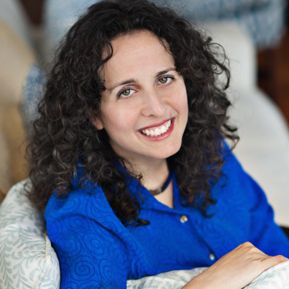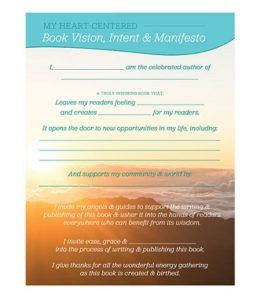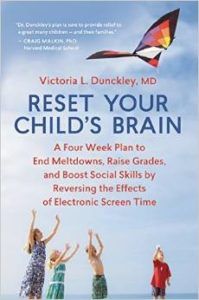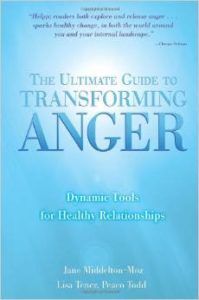
Before you start writing a book, let me tell you about Joyce (an alias).
Joyce became an award-winning published author a decade ago. She went on to write a book that people often found on the internet and read in one sitting. Many signed up for her in-depth, week-long training program and others contacted her to find a certified image consultant trained in her methods. She regularly received emails from people in England, Australia, Eastern Europe and her home country, the US.
Let’s ride the “Back to the Future” car, though, to several years before that. Joyce came to me with three vastly different versions of her book, each between 100 and 200 pages. Do you know how easy it is to take three books and figure out how to turn them into one?
It’s not. Ever. Easy.
Fortunately, I found her topic riveting and, as an image consultant, we spent time together rifling through my closet as she taught me how to dress the essence of who I am, along with the intention of who I am becoming. So, I thoroughly enjoyed the year and a half it took us to turn those three disparate partial-drafts into a cohesive, compelling self-help book.
Still, wouldn’t you love to write a book quickly?
Your biggest time saver? Getting clear on your book concept before writing a book, particularly for a prescriptive book—how-to, self-help, business, etc.
The Magic That Happens When You Answer These 5 Book Concept Questions—Before Writing a Book!

Getting clear on your book concept will help you know what to put in your book, in what order and what to leave out (equally crucial). A clear book concept will help you write a book that:
a) resonates for your readers
b) helps you manifest your vision and goals
c) has impact
d) is compelling and enjoyable to read
And it will improve your book’s potential in the marketplace.
Having walked dozens of authors through their individual book concepts—and hundreds through my classes, I’ve seen the power of writing a book this way time and again. In fact, many of the authors of the award-winning books I’ve supported have started with these 5 Crucial Elements.
Without further ado, here are my getting-started tips for writing a book:
7 Crucial Things to Know About Your Book Before You Start Writing

1. Why am I writing this book? You may have heard me talk about your vision statement before. What’s your greatest dream for what the book will do for you and your life? Your work? Your readers? Your community and the world? Boldly own it. I once worked with an author who told me several times she loved her job and was just writing a book because she felt moved to write it. After she wrote, published and quit her day job, she confided that she’d always wanted to start her own business coaching and speaking. You don’t have to tell anyone else yet, but do know why you’re writing a book—and be brave enough to own your deeper desires, even if you “own it” privately—between you and you.
Beyond your vision, set some book writing goals and objectives. These decisions will help you as you make other choices about your book, including your primary audience and type of publishing.
2. Who is my book for? We’ve talked about this one, too, before. Your book can’t be for everyone. Go too broad and no one will realize it’s the book for them. Too narrow and you may not have many people to sell it to! Find your sweet spot based upon your personal, professional and publishing goals. If you’re looking for a large publishing house, you may need a larger audience size than if you are happy with a smaller house or self-publishing.
3. What exactly are my readers looking for? Tempted to give your readers what you know they need? Think again. Give them what they want. You can surreptitiously fold in what they need, but package it in a way that speaks to what they say they want.
 4. How much information should I give my readers and how much to save for a course or the next book or other offerings? Ever read a book where the author tries to cram in everything on the subject? It may be all-encompassing, but do you find yourself overwhelmed or unable to put all the lessons into practice? Generally speaking, less is more. You aren’t doing your readers any favors by writing a book crammed with everything. Give them the perfect amount they can actually use without flooding them with TMI (too much information). You need to decide:
4. How much information should I give my readers and how much to save for a course or the next book or other offerings? Ever read a book where the author tries to cram in everything on the subject? It may be all-encompassing, but do you find yourself overwhelmed or unable to put all the lessons into practice? Generally speaking, less is more. You aren’t doing your readers any favors by writing a book crammed with everything. Give them the perfect amount they can actually use without flooding them with TMI (too much information). You need to decide:
a) How broad to go (what goes into this book and what topics fit for another book or two)?
b) How deep to go (what material can you save for a course or information product, where the reader may have a deeper commitment and more support to practice with the material and follow through with what they’re learning)?
c) What’s the reader’s sweet spot in terms of what they can put to use easily vs. what will likely overwhelm them?
When Victoria Dunckley, MD began writing her book, she envisioned sharing all the things she found in her practice that helped kids with emotional and mental health—screen limits, diet, sleep, boundaries and more. At the time, almost no one was writing about screens and people didn’t know the harmful effects on the brain that we know now. My instinct was to focus on that fresh information and leave the other topics so that she could do justice to this one topic which, she reported, had a more profound effect on mental health than any of the other topics. Reset Your Child’s Brain became a groundbreaking parenting book that has made Dr. Dunckley an in demand speaker on the topic of electronics and screens and their effects on children.
5. What features and tone might help me best convey my message and appeal to my readers? For The Ultimate Guide to Transforming Anger, my co-authors and I employed cartoons and quirky, creative exercises. In fact, when my co-author Peaco Todd and I first approached Jane Middelton-Moz, she was particularly excited about the cartoons because, on his TV show, Montel Williams had asked her to make things really simple for his audience. When we approached Jane with our book concept, she realized that humor could make the book so much more approachable. In addition, the creative exercises empowered readers to actually change the ways they experienced and approached anger so that they could actually transform aspects of their lives, from relationships to work life to emotions. Ask yourself:
a) What features will make the book a richer experience?
b) What features will empower my readers?
c) What can I offer that’s fresh and different?
6. How do I structure my book? Glad you asked. Some editors provide cookie cutter approaches to structure but I offer several methods of figuring out the book outline that works for you. Most of them involve index cards or Sticky Notes you can move around to play with different structures. You want to organize information based on your unique book and not write a book just based on a somewhat random structure. Play with different options and be sure to answer these questions to help you write chapter outlines. You can even ask a sampling of target readers for feedback on several possible structures. Perhaps they will come up with something even better.
7. Am I self publishing or do I want to try for a traditional book deal from a publishing house? The answer to this question determines the path you take. Rather than write a whole book if you only need one or two sample chapters for the proposal, decide early on which publishing path you prefer. You can always change course later but making a tentative decision now can save time. Of course, if you do decide to go for a traditional publishing house, you’ll need to know how to write a book proposal.
Read this post on how to write a great book to read about how other authors decided upon vision, structure, features and other aspects of their book.
And here’s one thing that most authors think they need to know before beginning, but truly you do not:
Do I Need to Know the Title Before I Write a Book?

Good question. You do not need to know the title before writing a book. In fact, often the title comes near the end. With The Ultimate Guide to Transforming Anger, I started the project with “Engage Your Rage.” I thought the idea clever and counter intuitive. The problem? No one wants to engage their rage. That sounds scary. Plus the book covered so much more than rage. We needed an accurate title.
When I began collaborating with Peaco, our title briefly became, “Anger-obics,” named after the exercises in the book. But that title didn’t really say much either. Jane, Peaco and I settled on Good and Mad: Transform Anger Using Mind, Body, Soul and Humor.” I’m guessing it was a good title, because New York Times Bestselling author Rebecca Traister used the same title (not subtitle though) for her recent book.
We loved our title, but when the publisher printed the book in dimensions and with a cover that kept it out of bookstores—no matter how good the national press (a great review in the Chicago Tribute, for example)—we convinced the publisher to republish in new dimensions that bookstores would buy and a cover that was clearly for adults and not kids or teens.
To get bookstores on board to order, the book needed a new title and ISBN number. And that required a new title which we had to come up with in 48 hours, if I remember correctly. That was the shortest 48 hours ever. We settled on The Ultimate Guide to Transforming Anger: Dynamic Tools for Healthy Relationships.
A strong working title can inspire you and even help you stay true to your vision for the book, but be open to a change in title as you travel deeper into the process.
In short, have fun with your title. Revisit it from time to time. And allow yourself the freedom for your final title to come. Who knows? Your publisher may even change the title before the book comes out.
Have questions about writing a book? Ask away! Just write your comment below and I promise to answer.



Is it advisable to copy write a title which you are sure to use in future?
Hi Irene,
You can’t actually copyright a title. By the way, I don’t think my email response to you got through. Something to do with your email blocking software, but I did respond to your emails.
Lisa
Hi my book has been written and is in final, final stages of being edited by a consultant. I have purchased a publishing package with IUniverse however I have absolutely a zero platform or reach and my basic topic is very narrow for those who would be interested and willing to make the internal journey. Title is Twisted Roots Standing Tall. It is my jojurney from sexual abuse from age 18 months through my years until age 20. I am a wounded healer and while the message is vital to transform these traumas it is not everyone’s cup of tea. My goal would be to become a world speaker and do online healing work say 10 hours per week. I am a very spiritual person. I do shamanic energy, body work. Should I spend another $6000 or $7000 on off set printing without testing the response to my book? Thank you. Your information is valuable. My old 15 year website is under construction
Hi Anne,
Congratulations. It seems to me that print on demand is much less of a risk. And I’m not sure what benefit you get by offset printing, except for slightly higher quality printing. Although I don’t know what quality iUniverse provides, in general, POD can be fairly good quality. I advise creating a business plan and using the book to support your business as a speaker and healer, perhaps teaching your material as well.
Lisa